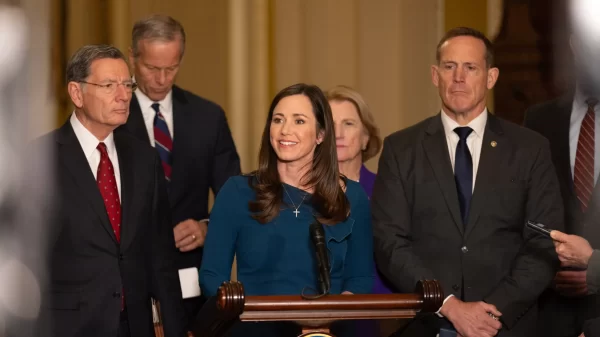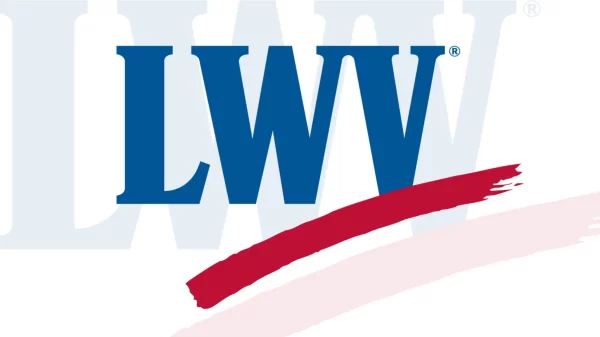By Bill Britt
Alabama Political Reporter
“Somebody should do something.”
After nearly five years of being rebuffed for his common-sense stance on the Ethics Commission, Dr. Stewart Hill Tankersley is doing something significant: Exposing institutional corruption and the particular failings of the Commission, sworn to hold every public official to the letter of the law.
Tankersley’s interview with APR confirms what close observers of the Commission have seen over the years. By peeling back the ugly mechanisms of an almost lawless Commission, Tankersley has exposed members who routinely entertain ex parte meetings with those seeking favorable outcomes on advisory opinions. Will it stop? Will these revelations curtail the practice of granting sweetheart rulings for lawyers, lobbyists and their well-heeled clients? Will the Legislature step in and follow through on the ethics reform package prepared by the Attorney General’s Office for last session?
Tankersley’s candid insight reveals a Commission that operates without oversight, where fixed rules and procedures are few and exceptions are many.
After publishing Parts One and Two of APR’s Exit Interview with Tankersley, he has found that effecting change has its cost, as some of the State’s powerful elites have pushed back against him. For now, they’re content to nitpick around the edges of his disclosures while privately seething at Tankersley’s bold revelations.
For instance: Birmingham-based attorney, J. Mark White, sent a letter to the Commission, complaining about Tankersley’s observation that Commission Chair Jerry Fielding had called on him during a suspect Ethics hearing, even though White was not registered to speak at the meeting. White responded by saying his partner was signed in to speak and did. Obtuse whining by thin-skinned attorneys apparently is the norm for a Commission that appears to favor the well-connected.
Tankersley has little to fear from such piffling retorts as his integrity and years of medical, military and public service shielded him from such silliness. Undeterred, Tankersley says he will continue his crusade to restore trust in the State’s institutions without fear or hesitation.
With less than a month remaining on his appointment as a member of the Ethics Commission, Tankersley will likely vote on two significant advisory opinions that could upend the meaning of Ethics laws as they are presently understood.
While he would not comment on these opinions in APR’s interview, his public comments are enough to show the weight he puts into deciding these impending decisions.
One request for an opinion pertains to the revolving door statute and the other to conflicts of interests when working in economic development.
The first issue before the Commission is whether, under current law, former Acting Finance Director, Bill Newton, can open a consulting firm, despite a ban on public officials being allowed to “lobby,” within two years of leaving government service.
Newton is being represented by the same law firm that unsuccessfully represented disgraced former Speaker of the House Mike Hubbard during his criminal trial.
Tankersley at a recent Commission hearing said, “The purpose of the two-year revolving door statute is to keep somebody from rigging the system to set themselves up to walk out the door the next day and use the system they had created to benefit themselves.”
Newton, who was pushed out as Acting Finance Director, signed hundreds of millions of dollars in contracts for State goods and services over his years in government. He is now asking, according to his attorney Joel Dillard, “Would I [Newton] violate Code Section 36-25-13(f) if, under my plan, and within the two-year period after termination from office or employment, I provided the professional services of advice and consultation to my clients in connection with a non-judicial matter?”
Subsection (f) was revised to become subsection (g) and is part of the greater language that prohibits public officials or public employees from representing clients, including his or her employer before a board, agency, commission, department or legislative body, within two years after departure from government service.
Newton, a lawyer himself, wants the Commission to approve his consulting business because he says he will be providing “professional services of advice and consultation to my clients in connection with a non-judicial matter.” The odd phrasing here “my clients in connection with a non-judicial matter (singular)?” is because of the construct of Subsection (g). In this section, Newton sees an opening to circumvent the revolving door statute based on a wishful interpretation of one sentence in the code.
Subsection (g) reads in part, “No former public official or public employee of the State may, within two years after termination of office or employment, act as attorney for any person other than himself or herself or the State, or aid, counsel, advise, consult or assist in representing any other person, in connection with any judicial proceeding or other matter.”
In this sentence, the word judicial is being used as an adjective to modify the proceeding word. If the code stops there or isn’t followed by, or other matter, then it would be talking about one thing.
Even if it read, “judicial proceeding ‘AND’ other matter” it would only be referring to judicial proceedings; but it doesn’t.
The code reads, “judicial proceeding or other matter.” The word other in this sentence is an adjective, which modifies matter. Therefore, a strict reading concludes that it is referring to groups other than lawyers. This may not be the intent of the draft, but that’s what it says.
Newton is hoping it will be interpreted, as if it only applies to lawyers in a judicial proceeding, giving him a way around the revolving door statute.
Lawyers, as Tankersley has pointed out, are often seen as looking for ways to navigate around State Ethics Laws for their clients and themselves. In his Exit Interview with APR, he spoke about a time when he found a provision in a piece of legislation, that would have excluded attorneys from the Ethics laws altogether.
“When tucking campaign finance under the Ethics Commission, someone slipped in a simple amendment that the Ethics laws did not pertain to lawyers,” Tankersley said. He says Ginger Avery, who represents the Trial Lawyers Association, was called to explain the exception but, “she said she was shocked it was in the Bill. After hearing Avery’s response Tankersley said, “good then we can remove it.”
Catching sneaky legislation and lawyerly attempts to circumvent the intent of the Ethics Code, places an extra burden on part time commissioners, Tankersley believes. “The one suggestion I have for an incoming commissioner is: be ready for a lot of work and read the statutes and know them.”
It’s not only lawyers but business interests that want exemptions from the Ethics rules, which leads to the other important vote Tankersley will most likely cast before his time on the Commission expires.
The Commission is being asked to allow those in economic development to be excluded from the Ethics laws. Currently, those who participate in economic development are required to register as lobbyists. Those who want to be exempt from economic development from lobbyist-type restrictions claim it places an undue burden on those working to bring business to the State.
Secretary of Commerce Greg Canfield is a supporter of lifting the lobbyist requirements.
While Tankersley withheld his opinion when speaking with APR, he has in the past said that if a legislator’s full-time job is economic development than it would be improper, because, in his opinion, that would be lobbying while serving as a lawmaker.
Emails uncovered in the Hubbard criminal trial showed that Hubbard wanted former Governor-turned-lobbyist Bob Riley to forgo his lobbyist registration and claim he was merely engaged in economic development. When crafting the current Ethics code, Riley saw that his young protege, then-Senator Bryan Taylor, wrote the right exceptions for the type of work Riley wanted to engage in, according to those who witnessed the process. During his tenure as Governor, Riley doled out millions in economic incentives to companies which he later would represent as a lobbyist. Hubbard thought there was a way around registering as a lobbyist, which would have given Riley greater latitude to grow his consulting business without the constraints of the Ethics Laws.
Flouting Ethics Laws is what landed Hubbard in trouble and led to his conviction on 12 felony counts of public corruption. He called it economic development, but the jury found it was a crime.
Now, it appears the Commission is being asked to codify Hubbard’s activities as just business as usual. It is important to note that Hubbard’s case is under appeal pending a ruling by the State’s Court of Criminal Appeals.
An exception for those who conduct economic development appears to be yet another rouse to thwart the spirit and intent of the laws.
Tankersley hopes to see the Legislature address the issues he has raised. He would also like to see changes to the statements of economic interest filings that would demand public officials to report any money they receive from gaming interests including any casino winnings. He would also like to see lawyers report individual clients on the SOEI forms like any other public person.
The State’s appointed Attorney General, Steve Marshall, has shied away from making waves on the Ethics front, as a host of special interests continue to push to further weaken Marshall, leaving the people with little reason for confidence in the system as it stands. However, there is a group of lawmakers intent on bringing Legislation to fix some if not all of the problems highlighted by Tankersley.
His service to the State is an example to all Commissioners who will follow him.



















































